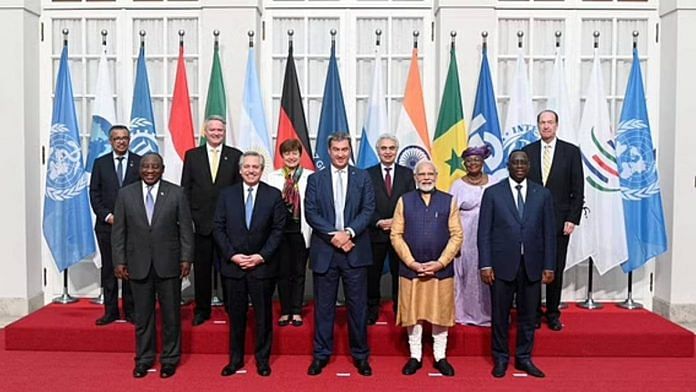New Delhi: The leaders of top industrialised countries agreed to explore ways to place global price caps on imports of Russian energy at the G7 Leaders’ Summit last week.
Unlike the European Union’s (EU) approach of a phased ban on 90 per cent of Russian oil by the end of this year, a price cap would mean allowing countries to continue to import Russian oil but limiting the price.
This comes at a time when Western countries are facing high inflation within their own borders as a result of rising energy prices amid the Ukraine war. Meanwhile, developing countries including India and Bangladesh are facing high food and energy costs.
Reports have characterised the proposed price cap as indicating that Western sanctions haven’t yet stung Moscow where it matters.
According to The New York Times, it is “an acknowledgment that Western embargoes have not yet dented Russian oil revenues, while they have driven up gasoline and other fuel prices”.
Although the Russian economy has taken certain hits — the country has defaulted on its foreign debt for the first time in more than a century — its oil revenues remain healthy.
According to a study by Finnish think-tank Centre for Research on Energy and Clean Air (CREA), Russia’s revenue from fossil fuels — its biggest export — broke records in the first 100 days of its war on Ukraine, showing that many countries have indirectly helpedfinance the war.
China and three EU member states — Germany, Italy, and the Netherlands — are the top importers of Russian fossil fuels, according to the study.
Specifically for crude oil, Russia has become India’s “second-biggest” source since the start of the war, that too at discounted rates. Reports have calculated that New Delhi, between late February and early May this year, bought 20 per cent more barrels than it did in all of 2021.
Also read: As purchases continue, Modi govt proposes settling trade with Russia in rupees
‘Incredibly ambitious’
Imposing a price cap on Russian oil imports has been described by analysts as an “untried” plan and “incredibly ambitious”. The US banned Russian oil imports in March and the UK plans to phase them out by the end of this year, but a price cap goes one step further.
Some EU leaders themselves have expressed apprehensions about the potential spillover effects of such a plan.
During the G7 summit last week, European Council President Charles Michel emphasised the need for a “clear vision” when it comes to such a plan.
“We want to make sure the goal is to target Russia and not to make our life more difficult and more complex,” he had said.
Also, the process of coming up with an upper limit of a global price on oil and gas may invariably have to include Russia, which is a top global supplier of oil and is also part of a group called OPEC+, consisting of the Organization of Petroleum Exporting Countries and its allies.
An unnamed French presidency official told Al Jazeera Sunday that the G7 would have to consult OPEC+ before arriving at a price.
OPEC’s founding members are Iran, Iraq, Kuwait, Saudi Arabia, and Venezuela. Other members include countries such as Algeria and Nigeria, while Russia, Mexico and others are part of the expanded OPEC+ grouping.
(Edited by Nida Fatima Siddiqui)
Also read: Diamonds & blood: How sanctions against Russian diamond industry can help crime, hurt India



